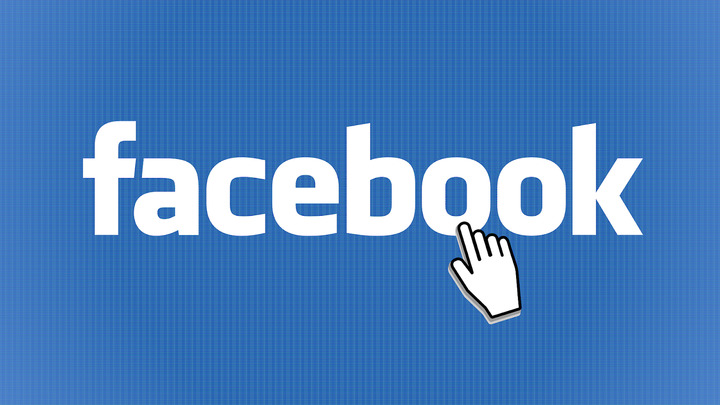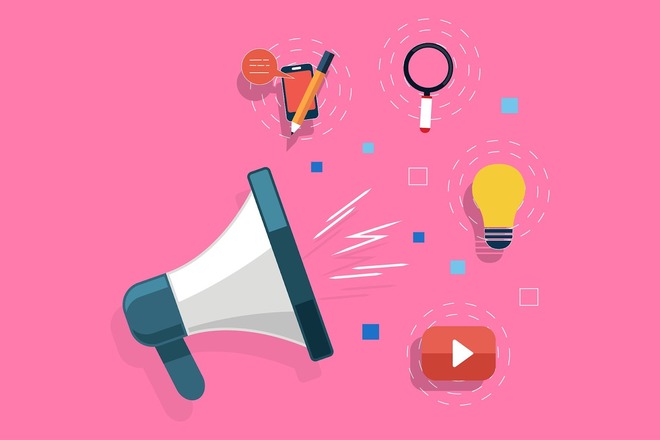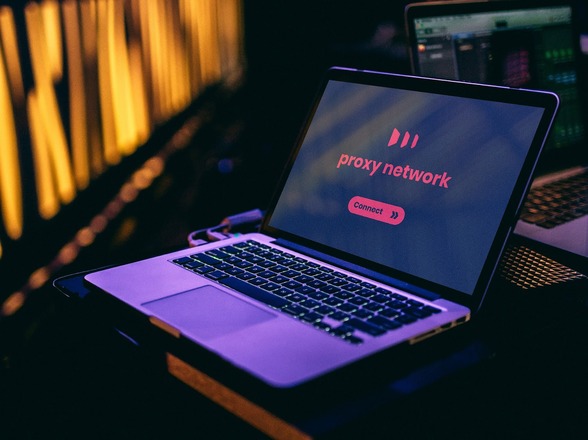Scraping Facebook Data: Top 3 Surefire Ways to Get the Most of It

For a long time, businesses have depended on data scraping to monitor price changes and get research insights on sales opportunities in the market. The data source affects its credibility, which is why most organizations go for commonly used platforms like Facebook, by Meta, for information.
Consider this: According to Statista.com, Facebook had roughly 2.93 billion users in the second quarter of 2022. With these figures, the platform ranked as the most active social media platform in use, according to DataReportal. Today, Facebook is the world’s most interactive and powerful commercial platform, compared to platforms like LinkedIn or Twitter.
So, if you are looking for information credible enough to level up your sales campaigns, and strengthen your marketing schemes to find new opportunities in the market, then scraping Facebook could be helpful in your data gathering efforts.
Benefits of Scraping Facebook Data
Scaping Facebook data can help your research on new market opportunities and competition. With the right scraping tool, you can get massive volumes of data in a short time. Some of the advantages of scraping Facebook data include:
- You remain up-to-date with the latest consumer trends;
- You receive information that you can use to promote your content;
- Scraping enables you to get insights into the kind of content your audience will be more responsive to;
- Scraping enables you to identify your target audience and the best time to promote your content;
- Through scraping, you can track market trends, source business partners, or run campaigns.
Now, how do you scrape data from Facebook legally? ProxyBros are here to help you understand the ways of automatic data collection from Facebook.
What Data Can You Collect Scraping Facebook?
With many active monthly users, you can expect a lot of data and trends from Facebook. This means more information is available for analysis. Scraping Facebook is not straightforward as it sounds.
From this, you can deduce that private information and copyrighted content are off-limits, and scraping that data could land you in court. That is why in light of past experiences, Facebook launched legal actions against data scraping sites that fish for data for unauthorized use.
So, what data can you scrape from Facebook without landing in hot waters?
- 1. User Profiles
A scraping service can help users get information on the profile picture URLs, names, last post information, likes, followers, verified profiles, and profile types.
- 2. FB Organizations/Groups
Facebook business pages are standard for almost all organizations. They form a crucial part of their web presence campaign, thus creating a vast pool of information.
Therefore, you can use your Facebook page scraper to prove or monitor your competition. You can do so by collecting feedback or valuable customer insights. More importantly, you can scrape Facebook pages to get more insight into customer behavior, trends and preferences.
- 3. Posts
Facebook posts drive conversations. Whether the post is in the form of a text, a video, or an image, they all add value and drive engagement. From Facebook posts, you can get information on whether they are sponsored, the number of views on videos, the number of comments and shares, the number of likes, dates, post text, media URLs, and scrape time.
- 4. Comments
Despite their small numbers on Facebook, user comments hold much power. You can get information on the user network on Facebook from them.
Users mention other pages, groups, and users with similar or dissimilar products in the comment section. Here, you can collect information on text, photos, videos, stickers, avatars, gifs, emojis, and so much more.
Scraping Facebook Data: Process Explained

Facebook is a pool of user-generated data. And therefore, with the proper knowledge of Facebook data scraping, you can better understand your target audience, whether for political or business reasons.
And although the process itself is pretty complicated, FB scrapers are making the job simpler for individuals and businesses. Now, if you are interested in how scraping Facebook pages work, here is the process in detail.
Step 1: Get a Facebook Scraping Tool
Analyzing data from Facebook can be a good base for your social media marketing campaigns. You must have user authorization and a data collection tool to get the information. A Facebook scraper is a tool that will help you mine data from Facebook public pages. With the Facebook data scraper, you can collect data such as comments, reviews, posts, likes, etc.
A Facebook scraper tool will be fast and reliable since most are cloud-based.
Step 2: Create an account
Once you have your Facebook scrape tool, you should log in to get started. Some Facebook scraping tools come with free access in the form of credits, which means you can start scraping once you have an account.
Some come with a subscription plan. However, most FB scrapers have a free trial period, with limitations.
Step 3: Configure your scraping
This step includes selecting the type of data you want to be scraping from Facebook. You can choose your combination at the ‘Documentation’ page of the Facebook data scraper you are using.
Some platforms come with a 2-step verification process, which includes 2 API calls. Usually, these steps are taken to filter bots in social networks.
Step 4: Start scraping
Once you have finished the configuration, you can start collecting data from Facebook profiles and posts. That means you are ready to scrape Facebook group members for data to inform your next business steps.
Top 3 Ways to Scrape Facebook Data (with instructions)
As mentioned, Facebook is a pool load of actionable data that you can use as a base for your business decisions. You can build your brand and better understand your customer with the information.
Using a Facebook scrapper, you can monitor trends and public opinions, create an aggregation service, and even stay in touch with your customers in a more effective manner.
The top 3 ways to scrape Facebook include:
1. Python Facebook scraper

One of the most common ways of scraping Facebook pages involves building a custom scraper using Python. Arguably, Python is one of the best programming languages for creating crawlers.
It offers more control to the user, and you can fine-tune your specifications for better data gathering. However, the technique requires some programming knowledge.
But do not worry. If you do not know the language, you can start with a Python library to scrape Facebook.
Here is a guide on using a ready-made Python program to collect data from Facebook:
Step 1: Install the package
If you cannot create the scraper from scratch, you will use a Facebook crawler created by someone else. To use it, you need to install it onto your network, and you can do so using pip.
That is:
Pip install facebook-scraper
Step 2: Fetch Facebook data
If you are using a Facebook post scraper, you can collect post details using a function. The get_posts () function uses the group ID, which you can find in the group’s URL as the parameter.
You can expand the range of the function to collect data from pages using a number. For example:
get_posts (default:10)
You can also define the intervals between data collection points by using the function scroll_interval (default:30)
The (default: False) parameter collects extra information, such as post reactions and more.
A function like get_profile() collects data on profile info, using the username as the parameter. Luckily, you can get the username from the profile URL.
For example:
facebook.com/andrerson
Anderson is the username.
Using your Python Facebook scraper, you can use the get_group_info() function to get group information.
For this one, you will need the group ID as the parameter, and you can find the ID in the group’s URL.
Pros of using Python to scrape Facebook data
Some of the benefits of using Python facebook scrapers include:
- They are easy to use
- The syntax is easy to understand
- Extensive library collection provides the services and methods for web scraping.
Cons
- To use Python scrapers, you need some understanding of the language
2. Using a scraping proxy

In light of the recent accusation of Facebook releasing user data to Cambridge Analytica, strategies to protect user data have become tighter on the platform. Therefore, getting information from users without being blocked at least once has become even harder.
However, using proxies can help you bypass CAPTCHAs.
4 Reasons to Use Proxies for Data Scraping
Proxies use hundreds of thousands of residential and data center proxies to give you the best protection against blocked results. So, you get multiple IP addresses, allowing you to act like you are using a different computer.
More importantly, the many proxies make it possible to submit many requests simultaneously.
Other benefits of using proxies for web data scraping include:
- They are more reliable and reduce the chance of you being blocked
- Proxies make it possible to request geographical data, which comes in handy for online retailers
- You can get around the IP bans imposed by the website
- You can make more requests to a target website without being blocked by Facebook
How many proxies do you need?
As you scrape the web for information, remember that the more you have, the better. A single proxy will limit your reliability and the number of simultaneous requests you can make. That is why rotating proxies are the best choice for scraping activities as every request is made with a different IP address. IP rotation ensures scraping runs seamlessly and without delays. However, one should opt for the proxy provider with an extensive IP pool for proper rotation.
Remember, the choice of proxy provider will depend on:
- Requests made per hour
- Target websites – larger websites require a more extensive pool
- Type of IPs you are using
- Quality of IPs
- The complexity of your proxy management system
How to use proxies for data scraping
When using a proxy for Facebook data scraping, the proxy manager routes the requests to the website through their pool of IPs.
This may introduce delays but filters the banned proxies from the functional ones.
As the user, you can then assign instructions to the Proxy manager using APIs. You can set parameters through these instructions, such as browser profile or geographical location.
3. Using a scraping bot

When using a scraping bot, the first thing you do is to login into your account. You can register on your favorite scraping bot website to create an account if you do not have one.
Once you are in, you need to configure your scraping to start.
The configuration, in this case, means setting the endpoint. Usually, you can achieve this with 2 API calls.
- First part: Get your Response ID
In the first call, you aim to get your responseID. To do so, you should first make a post request using the following parameters:
- Scraper – You can use parameters such as ‘facebookProfile,’ ‘facebook post,’ or ‘facebookOrganization’ to scrape profiles, posts, or organization pages, respectively
- URL, which is the link to the profile, post, or organization page you want to scrape
By the end of the request, you will have something like:
- Second part: Configure the GET request
Once you have a response ID from your first call, you can complete the request by adding the ID to the response endpoint and scrapper.
You will end up with something like this:
https://api.scraping-bot.io/scrape/data-scraper-response?responseID=XXXX&Scraper
Once everything is ready, you can execute the API call, and from there, you can collect the data from your desired posts, organization pages, or profiles with the scraping bot.
Pros
- Scraping bots come at a lower upfront cost
- They are easier to implement
- You can automate the scraper to analyze massive data
Cons
- Bots can put your business at risk of fraud by replicating sites and convincing you that it is not fake.
- Bots may fail to raise the alarm when the data is compromised, thus putting your business at risk of lower sales and site visits.
The Best Facebook Scraping Tips
When used in the proper context, Facebook scraping can be a lifesaver. You can collect data and use it to make essential decisions in your business. And since the practice comes with a lot of regulations and security protocols, here are some important tips to get you the best results from your Facebook data scraping:
- Always respect the users – Make a point to go through the guidelines provided by Facebook on Public Information. Also, remember your scraping activities could influence other users on the platform.
- Maintain human behavior – Faster scraping indicates that you may use bots for data collection. So, try to mimic human speed in your data collection by allowing room for error and movements or use rotating proxies.
- Stay alert – Facebook employs different measures to counter scraping on the platform. So, always be on top of the game with the newest rules on scraping to avoid being blocked.
- Use the correct tools and proxies – Using proxies changes your IP address while scraping. So, you can continue scraping for a long time without complications.
- Work with a web crawler – The web crawler feeds the scrapping API URLs to collect data and keeps the list updated as you continue collecting information.
What is the Best Tool to Scrape Facebook?
While all ways of scraping data from Facebook come with their share of pros and cons, using proxies proves to be the most effective and reliable tool to get information from the platform.
Proxies make it possible to send multiple requests to the same website while minimizing the possibility of being banned from the pages. They are also easy to use, especially if you understand the data you will collect and get a proper proxy management system.
Final Words
Facebook scraping is a resource that many businesses use to get data on their users. The platform boasts a proud 2.9 billion active users a month, making it a reliable source of information. Using relevant scraping tools, you can cash in on the opportunity and create better content to reach more people in your campaigns.
